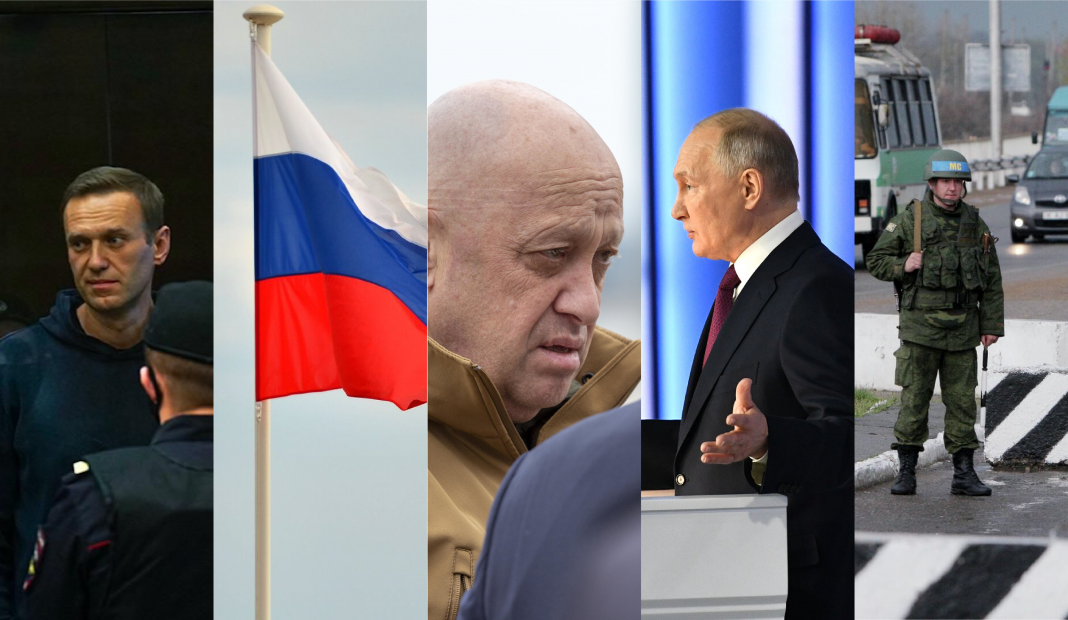This report describes the key events that had an important impact on the political, economic and social processes inside Russia.
Based on the results of the past week, the following key events can be brought to attention:
- Putin is increasingly actively participating in the election campaign, demonstrating his readiness to be elected for another presidential term. The “successor” project was finally postponed for another five years. Of course, this is also related to the Ukrainian issue, which Putin did not solve quickly. Now, much more time is needed to restore positions and preserve the existing political system in Russia.
- In parallel with domestic political processes in Russia, geopolitical strategies, primarily consisting of negotiations between the main actors, are also noticeably activated. Putin actively tries to involve China in the negotiation process, demonstrating readiness for more active actions. Apparently, we will be able to observe attempts to form a new world order with the participation of Washington, London, Paris, Moscow and Beijing. In this situation, it is essential to pay attention to the actions of India, Turkey, Germany, and Italy, as well as some other states claiming to make adjustments to similar plans.
- Against the background of US activation in Eastern Europe, new potential foci of unrest are emerging. The Kremlin is trying in every possible way to demonstrate its reluctance to concede its position in this region. The situation around Moldova and Transnistria is indicative. Soon, we should expect a continuation of the escalation, which is unlikely to turn into a new conflict but will pose a severe threat to security in the region. This conflict carries too many dangers but opens up several opportunities for each party.
During February 20th – 26th the following topics were the most relevant for Russia:
- Послание Путина Федеральному Собранию
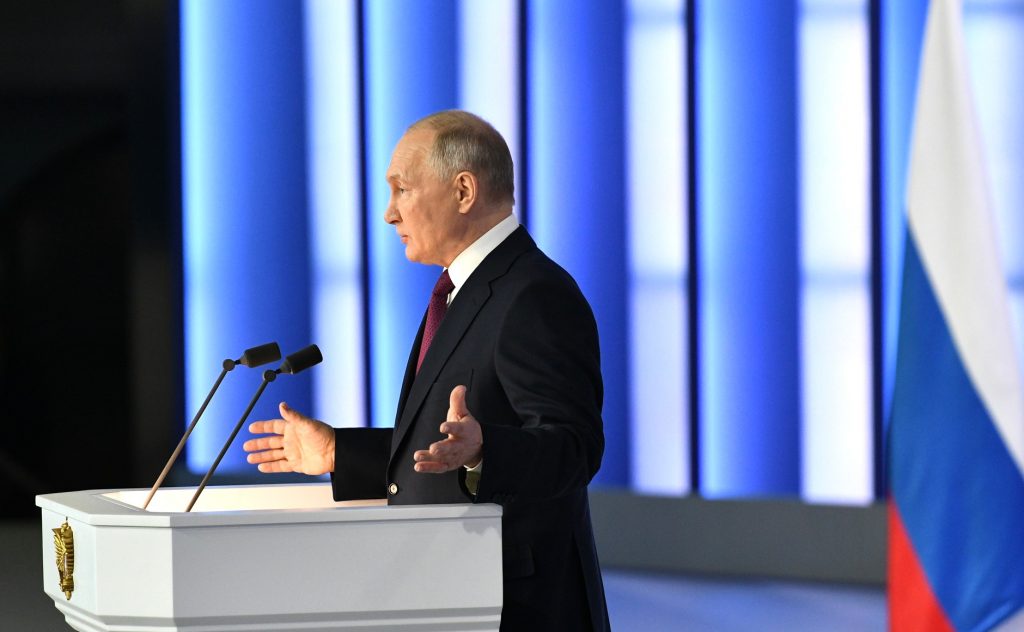
On Tuesday, February 21, Vladimir Putin delivered his annual Message to the Federal Assembly. Increased attention was paid to this event in Russia and the West. World analysts put forward many forecasts regarding the content of the Message: from an announcement of a full-scale war against Ukraine or a confrontation with NATO and ending with an announcement of a truce and the beginning of the negotiation process with Kyiv. In fact, Putin’s Message was addressed more to the domestic consumer and started the election campaign in Russia.
Putin’s key theses:
• “A year ago, to protect people on our historical lands, to ensure the safety of our country, to eliminate the threat posed by the neo-Nazi regime that took shape in Ukraine after the 2014 coup, a decision was made to conduct a special military operation. And we will step by step, carefully and consistently solve the tasks before us.”
• “They (the West) started the war. And we use force to stop it.”
• “It is impossible to defeat Russia on the battlefield.”
• “We are not at war with the people of Ukraine; I have already said this many times. On the contrary, the people of Ukraine themselves became hostages of the Kyiv regime and its Western masters, who occupied this country in a political, military, and economic sense, destroyed Ukrainian industry for decades, and looted natural resources.”
• “The more long-range means the West gives to Kyiv, the further the Russian Federation will be forced to push back the threat to itself.”
• “The West has already spent more than 150 billion dollars helping Kyiv and supplying it with weapons.”
• “Look at what they are doing to their people: the destruction of the family, cultural and national identity, perversion, child abuse, up to paedophilia, is declared the norm, the norm of their life, and clergymen are forced to bless same-sex marriages. God be with them; let them do whatever they want.”
• “I propose to create a special state fund.” His task will be targeted personal assistance to the families of fallen soldiers and veterans of a special military operation. In addition, he will coordinate the provision of social, medical, and psychological support, solve sanatorium-resort treatment and rehabilitation issues, and help in education, sports, employment, entrepreneurship, professional development, and obtaining a new profession.”
• “Anti-Russian sanctions are only a means, and the goal is to make the people of the Russian Federation suffer, but the calculation of these Western “humanists” was not justified.”
• “If you remember, when I addressed big business, I said that you are tormented by swallowing dust, running around Western courts. That’s how it all happened.”
• “For the West, rich Russians are second-rate foreigners with whom they can do anything. And no purchased titles will help – they are second-class citizens there.”
• “Serious changes are ripe in the higher education of the Russian Federation; a synthesis of the best practices of the USSR and the experience of the past decades is needed.”
• “Russia suspends participation in the First World War.”
• “Before returning to the discussion of the First World War, we must understand how to consider the nuclear arsenals of France and Britain.”
Outcomes and outlook:
Overall, Putin’s Message “gave birth to a mouse”: long expectations of something especially valuable and sacred did not come true. In fact, Putin said too little new and once again repeated those phrases that no longer receive a remarkable reaction either in the West or in Russia itself. Earlier, Ascolta detailed Putin’s main statements in his address to the Federal Assembly.
Notably, the Kremlin itself decided to add excitement around this event and, in addition to spreading rumours and gossip about the importance of the upcoming statements, outdoor advertising was placed in many regions of Russia, calling for viewing Putin’s message. Such an approach can also indicate a desire to focus on the internal audience.
The most discussed statement of the two-hour message was Putin’s decision to suspend participation in START III/New START, a treaty between Russia and the United States to further mutually reduce the arsenals of deployed strategic nuclear weapons. At the same time, it should be noted that this Treaty has not been working for almost five years, and the suspension of Russia’s participation in the Treaty will not lead to anything: the Treaty itself does not provide for “suspension”; moreover, the Treaty is actually dead.
In essence, Putin is sending a signal that he is ready to sign a new treaty but insisting that other nuclear states – France, Britain and an unnamed China – join it. That is, instead of an agreement “for two,” – a deal “for five”.
At the same time, several points are important: in particular, the revision of the nuclear doctrine of the Russian Federation, which is considered as direct blackmail of the Eastern European states (Poland, the Baltic countries, the Czech Republic, Slovakia, etc.), since as a result of the revision they can become targets for Russian nuclear missiles. In fact, Putin is signalling to the Eastern European members of NATO that the more you get involved in the game on the side of Ukraine, the more likely you are to be bombed by Russia. The subtext, given the previous words: “We will not bomb Ukraine and Ukrainians, although they are lost, our brothers are smaller, and you are potential targets. Think.
It is important to note that Putin’s message coincided with several developments in the geopolitical arena that should be considered as a whole:
The message itself, which is usually prepared at the end of the year, was postponed to February 21 and almost coincided with the anniversary of the Russian invasion of Ukraine, in connection with which many expected that on this day, Putin might announce an increase in hostilities or the resumption of attack on Kyiv.
In parallel with this, Joe Biden’s visit to Warsaw took place on the eve of which he unexpectedly visited Kyiv.
While in Warsaw, Biden met with Moldovan President Maia Sandu and also held a separate meeting with the leaders of NATO’s eastern flank.
On February 24, the UN General Assembly adopted a resolution on peace for Ukraine.
China has officially published its position on Ukraine, which previously preferred to take the side of an observer (many people managed to dub this document as a plan for a peaceful settlement from China).
Given several important events in the geopolitical arena, it can be assumed that the end of February was marked by a significant intensification of the negotiation process, in which Washington, Moscow, Beijing, Paris and London will finally try to establish a new world order. Hence the activity of the United States in Eastern Europe demonstrated monopoly influence on the region and levelled any ambitions of Great Britain. Therefore the activation of China, which does not take one of the positions in the war of Russia against Ukraine but is becoming more involved in European politics. Hence the decline in London’s activity is also reflected in many internal political processes in Ukraine.
It is important to note that this negotiation process is not built around the Ukrainian issue and is not evidence that they are trying to resolve the Ukrainian issue without Ukraine. Ukraine remains one of the essential elements in the negotiation process. Joe Biden’s statement in Kyiv that the United States will not refuse assistance to Ukraine is evidence that Ukraine will definitely not repeat the fate of Afghanistan soon. The only question is how much it will be possible to stop Russia, which, although weakened, is not to be underestimated as an enemy.
- Wang Yi visits Moscow
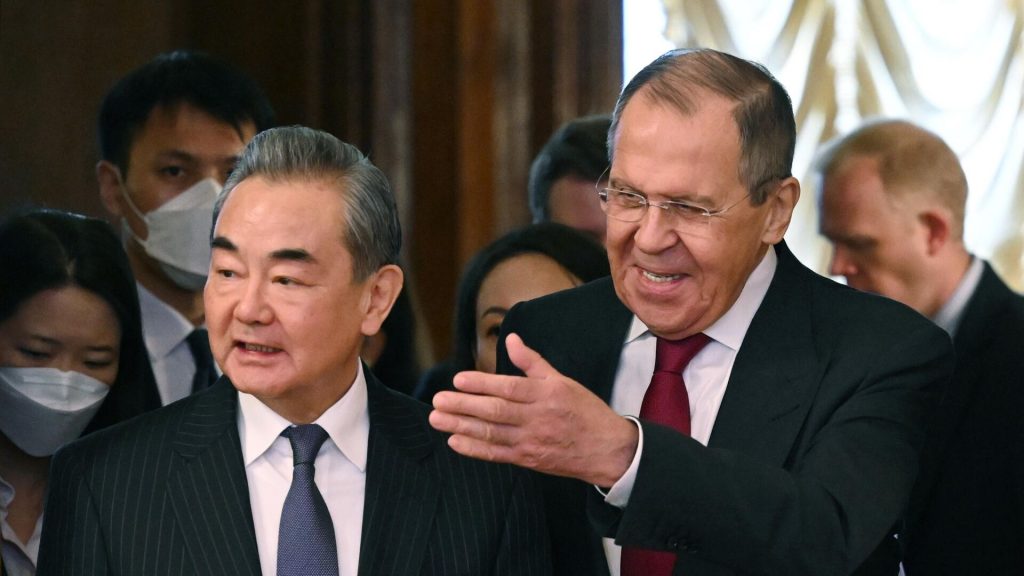
On Tuesday, February 21, Wang Yi, Head of the Office of the Foreign Affairs Commission of the CPC Central Committee, arrived in Moscow on a working visit. On the same day, he met with Secretary of the Security Council of the Russian Federation Nikolay Patrushev, and on February 22, he met with Russian Foreign Minister Sergey Lavrov. Wang Yi also held a separate meeting with Vladimir Putin. During his visit, Wang Yi planned to discuss topical international and regional issues with the Russian side, the Chinese Foreign Ministry said. The Chinese diplomatic mission added that Beijing intends to use this visit to ensure the stable development of Russian-Chinese relations in the direction set by the two countries leaders, as well as to protect the just interests of the two states.
Key theses:
- At a meeting with Wang Yi, Patrushev said that the deepening of Russian-Chinese international coordination is significant. According to him, developing a strategic partnership with China is an absolute priority for Russia’s foreign policy.
- Wang Yi, at a meeting with Patrushev, said that Moscow and Beijing need to synchronise their watches in the conditions of the “changeable situation” in the world. Wang Yi also said that Sino-Russian relations are solid as a rock and will withstand any test of the changeable international situation.
- Wang Yi and Sergey Lavrov agreed on the need to restore contact between the countries as soon as possible: “In light of the lifting of quarantine restrictions, a common opinion was expressed on the expediency of quickly restoring the dynamics of face-to-face contacts in all areas of bilateral cooperation, including meetings at the highest and high levels,” the Foreign Ministry said in a statement. RF.
- In turn, the Chinese politician said that in his post, he would continue efforts to strengthen ties between Russia and China: “Thanks to the strategic direction set by Chairman Xi Jinping and Russian President Vladimir Putin, China-Russia relations of comprehensive partnership and strategic cooperation in maintain high dynamics of development”.
Meeting between Putin and Wang Yi:
- At a meeting with Wang Yi, Patrushev said that the deepening of Russian-Chinese international coordination is significant. According to him, developing a strategic partnership with China is an absolute priority for Russia’s foreign policy.
- Wang Yi, at a meeting with Patrushev, said that Moscow and Beijing need to synchronise their watches in the conditions of the “changeable situation” in the world. Wang Yi also said that Sino-Russian relations are solid as a rock and will withstand any test of the changeable international situation.
- Wang Yi and Sergey Lavrov agreed on the need to restore contact between the countries as soon as possible: “In light of the lifting of quarantine restrictions, a common opinion was expressed on the expediency of quickly restoring the dynamics of face-to-face contacts in all areas of bilateral cooperation, including meetings at the highest and high levels,” the Foreign Ministry said in a statement. RF.
- In turn, the Chinese politician said that in his post, he would continue efforts to strengthen ties between Russia and China: “Thanks to the strategic direction set by Chairman Xi Jinping and Russian President Vladimir Putin, China-Russia relations of comprehensive partnership and strategic cooperation in maintain high dynamics of development”.
Outcomes and outlook:
It is important to note that against the backdrop of China’s activation in the geopolitical arena, Wang Yi’s visit to Moscow is very significant due to several factors. Moreover, in the informal party-state hierarchy of the PRC, Wang Yi is the country’s highest-ranking diplomat, in charge of the most critical issues of China’s foreign policy. Wang Yi is also perceived by many as almost the second person in the unofficial Chinese hierarchy (especially after the 20th Congress of the Communist Party of China, as a result of which the Premier of the State Council of China, Li Keqiang, turned into a “lame duck”).
It is noteworthy that before visiting Moscow, Wang Yi visited France, Italy, and Hungary and also took part in the 59th Munich Security Conference, on the sidelines of which he held a series of meetings, including with US Secretary of State Anthony Blinken, British Foreign Secretary James Cleverly, Minister of Foreign Affairs of Ukraine Dmytro Kuleba, Head of the EU Foreign Service Josep Borrell and others.
Also, last week, several Western media outlets stated that Xi Jinping’s planned visit to Moscow could occur as early as April (Ascolta had repeatedly written about this earlier). So, of course, one of the important tasks Wang Yi in Moscow was the preparation for the visit of the Chinese leader.
Notably, the day after Wang Yi visited Moscow, China’s previously announced position on the Ukrainian issue was published. The 12-item position itself can hardly be called pro-Russian, although, in some points, it completely repeats Russian narratives. At the same time, it deals with the territorial integrity of states and the need to comply with existing international norms.
It is important to pay attention to the positive attitude of both parties during the meetings. Both Wang Yi and Putin (as well as Patrushev and Lavrov) have repeatedly noted the development and strengthening of Sino-Russian relations, which are experiencing better times. At the same time, the heightened concern of the West is also striking, where they have repeatedly expressed their fears in connection with the increased interaction between Moscow and Beijing.
Moreover, Washington began to actively discuss the possibility of Beijing transferring various weapon types to Moscow to strengthen Russian offensive operations in Ukraine. This information is denied by China but causes serious concern both in Kyiv and in the West.
In fact, now we are witnessing the activation of China in the negotiation process to form a new world order. Official Beijing puts forward its conditions, acting as a counterbalance to Western ideas and goals. Of course, as before, China will not take share Moscow’s side wholly, but it shows that it is ready to increase its support if the Western world does not hear it.
It is important to note that Ukrainian President Zelensky did not take China’s initiatives negatively – his reaction was rather neutral-positive (which cannot be said about the position of the United States and NATO). Moreover, the long-awaited contact between Zelensky and Xi is expected soon.
The voting results in the UN General Assembly on Ukraine can be no less alarming. Despite the dominant support (141 against 7), 32 states abstained from voting, including China, India, Kazakhstan, Pakistan, Mongolia, Iran, Iraq, Central African Republic, Cuba, Armenia and others – that is, the states in which most of the population of the earth. This argument can be used in the future not so much against Ukraine as against the position of the “collective West”.
It should be assumed that soon, the activation of China in the geopolitical arena will intensify. It is hardly worth talking about Beijing’s announcement of full support for Russia’s actions against Ukraine and the supply of weapons for the Russian military in Ukraine (this message is being popularised rather than mobilised by Western countries). Still, it is worth taking a closer look at the actions of several European states (including Germany, France and Italy) to synchronise their positions with Beijing.
In this case, it is too early to talk about China’s diplomatic victories and the expansion of its influence. Still, Beijing’s position clearly looks the most constructive and consistent, which makes the West worried.
- 15 points by Alexei Navalny
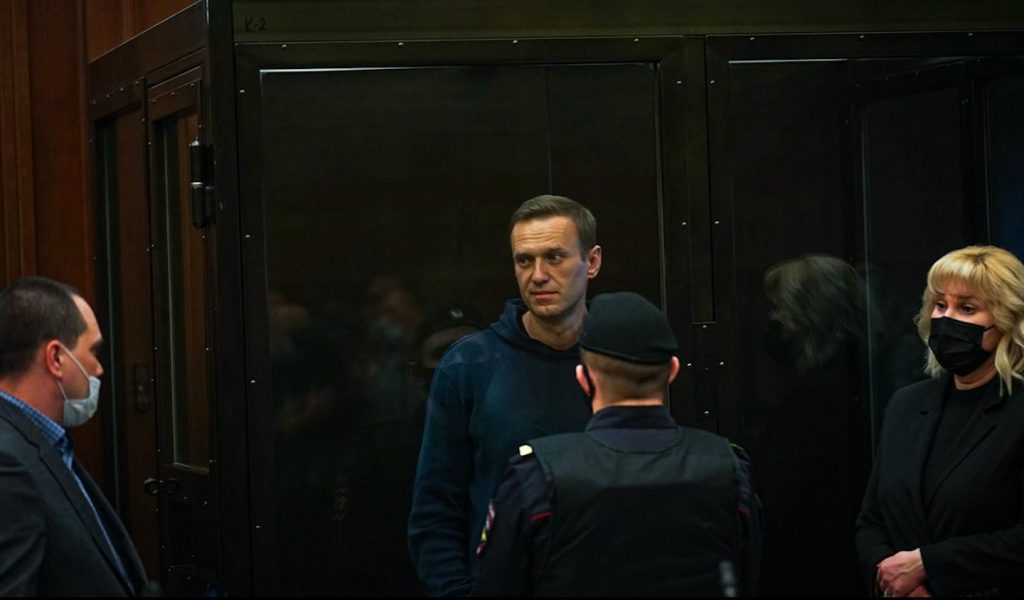
On Monday, February 20, the Russian “opposition” politician, who is in prison, Alexei Navalny, announced the creation of a new political platform timed to coincide with the anniversary of the invasion of Russian troops in Ukraine. Navalny suggested “investigating war crimes together with international institutions” and finding “acceptable ways to compensate for the damage caused to Ukraine”. For example, to direct part of the proceeds from exporting Russian oil and gas for these purposes. According to the politician, Russia should resolve this issue with the participation of Ukraine, the United States, the European Union and Great Britain.
This platform is called “15 points of a Russian citizen who wants the good of his country”:
- President Putin unleashed an unjust war of aggression against Ukraine under ridiculous pretexts. He is desperately trying to give this war the status of “people’s”, trying to make all the citizens of Russia his accomplices, but his attempts are failing. There are almost no volunteers for this war, so Putin’s army relies on prisoners and forcibly mobilises.
- The natural causes of the war are Russia’s political and economic problems, Putin’s desire to hold on to power at any cost, and his obsession with his historical legacy. He wants to go down in history as a “king-conqueror” and “gatherer of lands.”
- Tens of thousands of innocent Ukrainians have been killed, and pain and suffering have been inflicted on millions. War crimes have been committed. The cities and infrastructure of Ukraine were destroyed.
- Russia suffers a military defeat. The realisation of this changed the authorities’ rhetoric from “Kyiv in three days” to hysterical threats to use nuclear weapons in case of defeat. As a result, the lives of tens of thousands of Russian soldiers have been senselessly ruined. The final military defeat can be postponed at the cost of the lives of hundreds of thousands more mobilised, but on the whole, it is inevitable. The combination of “aggressive war + corruption + mediocrity of generals + weak economy + heroism and high motivation of the defenders” only results in defeat.
The Kremlin’s false and hypocritical calls for negotiations and a ceasefire are only a realistic assessment of the prospects for military action.
- What are the borders of Ukraine? The same as in Russia – internationally recognised, defined in 1991. We, Russia, also recognised them then. Russia must recognise these borders even now. There is nothing to discuss. Almost all borders in the world are random and cause someone’s discontent. But it is impossible to fight for their change in the 21st century. Otherwise, the world will plunge into chaos.
- Leave Ukraine alone and let it develop as its people want. Stop aggression, end the war and withdraw all Russian troops from the territory of Ukraine. To continue the war is just a hysteria of impotence, but to stop it is a strong move.
- Together with Ukraine, the US, the European Union and Britain look for acceptable ways to compensate for the damage caused to Ukraine. For example (after the change of power in Russia and the end of the war), by lifting restrictions on our oil and gas, but with the direction of part of the income from the export of hydrocarbons for compensation.
- Investigate war crimes in cooperation with international institutions.
- Do all Russians have an imperial consciousness?
This is bullshit. For example, Belarus is participating in the war against Ukraine. Do Belarusians also have an imperial consciousness? No, they also have a dictator in power. In Russia, as in any country with historical prerequisites for this, there will always be people with imperial views, but this is far from being the majority. Therefore, there is no reason to weep and lament. Such people must be defeated in elections, just as right-wing and left-wing radicals are defeated in developed countries.
- Does Russia need new lands?
Russia is a huge country with a declining population and a dying province. Imperialism and the desire to seize territories is the most harmful and destructive path. The Russian authorities are again destroying our future with their hands to make the country look bigger on the map. But Russia is already big. Our task is to save the people and develop what we have in abundance.
- As a legacy of this war, we will get a tangle of complex and, at first glance, almost unsolvable problems. It is important to determine that we want to solve them and start doing it honestly and openly. The key to success lies in the understanding that for Russia and its people, it will be not only good but also very profitable to end the war as soon as possible: only in this way can we begin to move towards the lifting of sanctions, the return of those who have left, restoring business confidence, and economic growth.
- Once again, I emphasise that we will have to compensate Ukraine for the damage caused by Putin’s aggression after the war. But restoring normal economic relations with the civilised world and the return of economic growth will make it possible to do this without interfering with the development of our country.
We are at the bottom, and we must push off from it to emerge. Then, it will be morally right, rational, and profitable.
- Dismantling the Putin regime and its dictatorship. Ideally, through general free elections and the convening of a Constitutional Assembly.
- Establishment of a parliamentary republic based on the turnover of power through fair elections, an independent judiciary, federalism, local self-government, complete economic freedom and social justice.
- Conscious of our history and traditions, we must be part of Europe and follow the European development path. We have no other, and we do not need another.
Outcomes and outlook:
Analysing the theses proposed by Navalny, it is worth noting specific trends in Russian “opposition” circles. First, at the end of 2022, the Russian authorities tried in every possible way to eliminate any opportunities for the activities of public organisations and individual leaders of public opinion in Russia funded by Western grants or individual structures. To this end, the law on foreign agents has been tightened, and new registries of foreign agents and those who may be associated with foreign agents have appeared. Moreover, in January 2023, the Moscow Helsinki Group, Russia’s oldest human rights organisation, was even liquidated.
At the same time, several groups of so-called Russian oppositionists (Khodorkovsky, Kasparov, Ponomarev, and now Navalny) became significantly more active at once.
It is worth noting that, according to the subjective opinion of Ascolta, none of those mentioned above public or political figures can be a real opposition leader since each of them pursues selfish goals and rather embezzles funds allocated by Western structures to fight the Russian regime, as well as do not have real support and influence inside Russia.
In Russia, most citizens are sceptical about Navalny and his movement. Many experts believe that Navalny tried to play double and triple games, positioning himself as a fighter against the regime in the West. In Russia, he played on inter-oligarchic contradictions. In the political environment of Moscow, Navalny was nicknamed the “messenger” who sends greetings from one Kremlin tower to another.
We can observe the struggle of “opposition” projects for the distribution of resources and the attention of the West. Considering that Navalny’s team is currently located mainly in Lithuania, where the Dozhd TV channel (associated with Khodorkovsky) was recently blocked, one can speak of intra-opposition competition with an attempt to occupy a free niche or intercept the allocated funds.
At the same time, one should not expect a visible effect from Navalny’s ideas. Under total control over the information space within Russia, there is no need to talk about the influence on public opinion from the outside.
- Russia’s reaction to the situation in Transnistria
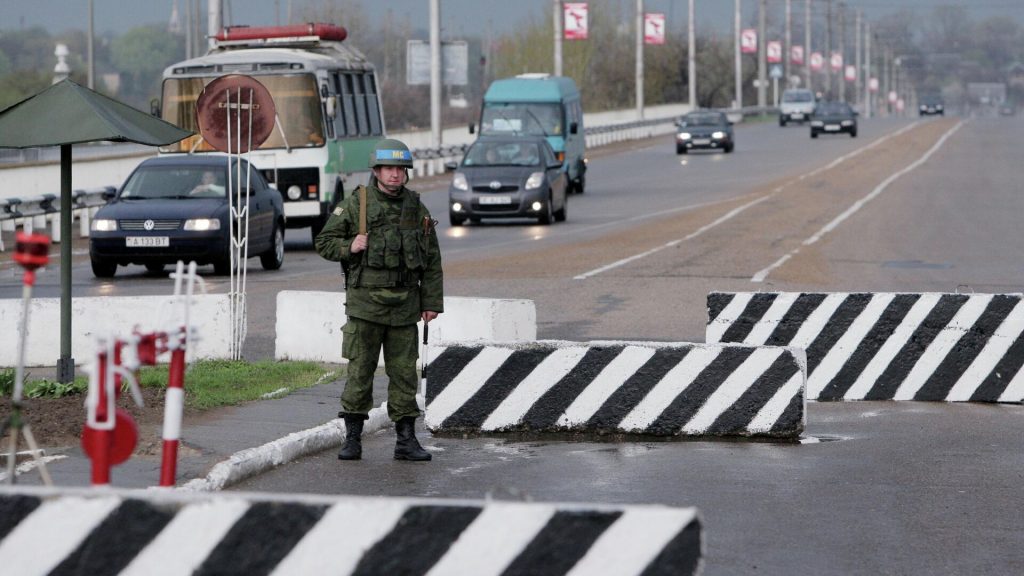
Recently, the issue of the Moldovan-Pridnestrovian conflict has been significantly updated. In particular, in Ukraine and Moldova, they began to actively discuss the possibility of Russia overthrowing the government in Chisinau with the help of the military from Transnistria or opening another anti-Ukrainian front. At the same time, Russia began actively discussing information about Ukraine’s planned operation to liberate Transnistria to restore Moldovan power there.
Against the backdrop of such rumours and forecasts, on February 23, the Ministry of Defense of the Russian Federation issued an official statement, claiming that it was recording “a significant accumulation of personnel and military equipment of Ukrainian units near the Ukrainian-Pridnestrovian border, the deployment of artillery in firing positions, as well as an unprecedented increase in flights of unmanned aircraft of the Armed Forces of Ukraine over the territory of the PMR.
“The implementation of the planned provocation by the Ukrainian authorities poses a direct threat to the Russian peacekeeping contingent deployed legally in Transnistria. Therefore, the Armed Forces of the Russian Federation will adequately respond to the impending provocation of the Ukrainian side,” the Defense Ministry said.
Sometime later, the Ministry of Defense of the Russian Federation issued a second statement, noting that Ukrainian troops were preparing an “armed provocation” against Transnistria: “As a pretext for the invasion, it is planned to stage an alleged offensive from the Russian forces from the territory of Transnistria. To do this, the Ukrainian saboteurs participating in the staged invasion will be dressed in the uniform of the military personnel of the Armed Forces of the Russian Federation.
Outcomes and outlook:
Despite several statements by the Russian side, the Moldovan authorities do not confirm such information and urge citizens to remain calm. Moreover, such information was repeatedly refuted by representatives of the Ukrainian authorities.
At the same time, it should be noted that the active discussion of the Transnistrian issue does indeed raise specific concerns due to possible provocations, which could lead to an escalation of the situation.
It is important to note that Moldova is an important channel for supplying Western weapons to Ukraine. Also, on the territory of Transnistria, there are warehouses with Soviet ammunition, the shortage of which is experienced by the Ukrainian side. That is, there are enough arguments that allow both sides to blame each other for escalating the situation.
In this case, it is important to consider two factors. Firstly, the Russian grouping of troops in Transnistria is not enough to open a full-scale front against Ukraine (there are about 1400-1500 military personnel there who have not been rotated for a very long time and are in many ways in rather dubious combat uniform). Moreover, without any supply routes, there is no need to talk about the possible success of such an operation. Secondly, against the background of active discussions of information about the operation allegedly being prepared by Kyiv to liberate Transnistria, a wave of criticism arose among the Ukrainian military, demonstrating an unwillingness to fight for Moldova or the interests of other states.
But it should also be recognized that stuffing with an attempt to revive the “Kozak Plan” of 20 years ago is increasingly appearing in the information space – a plan for the dismemberment of Moldova (including with the participation of Ukraine).
At the same time, it is important to consider the internal political situation in Moldova itself, where, against the backdrop of an intensifying economic crisis and rising prices for electricity, utilities and food, the positions of pro-Russian forces are significantly strengthening. In this case, it is worth noting that such information in the media can also be disseminated to influence public sentiments (profound pro-Russian sentiments persist in Moldova).
At the same time, it is worth considering additional benefits for Russia. If Ukraine decides to take offensive actions, Russia can use this as an argument in front of its partners: “Look who is the real aggressor.”
An important point: on February 26, information appeared that two NATO aircraft carrier strike groups were deployed in the Adriatic Sea. In particular, we are talking about the US Navy nuclear aircraft carrier USS George Bush, the Italian aircraft carrier Cavour, the Spanish aircraft-carrying amphibious assault ship Juan Carlos I, and the American missile cruiser, destroyer and Italian frigate.
Of course, such activity of NATO naval forces is connected, first of all, with the forthcoming Cutlass Express 2023 exercises off the coast of East Africa. Still, while the aircraft carrier groups are in the Adriatic Sea, they protect the airspace of Moldova and Transnistria entirely from any actions of Russian aviation, which prominent influences the likelihood of an escalation in a given region.
- Conflict between Yevgeny Prigozhin and the Ministry of Defense of the Russian Federation
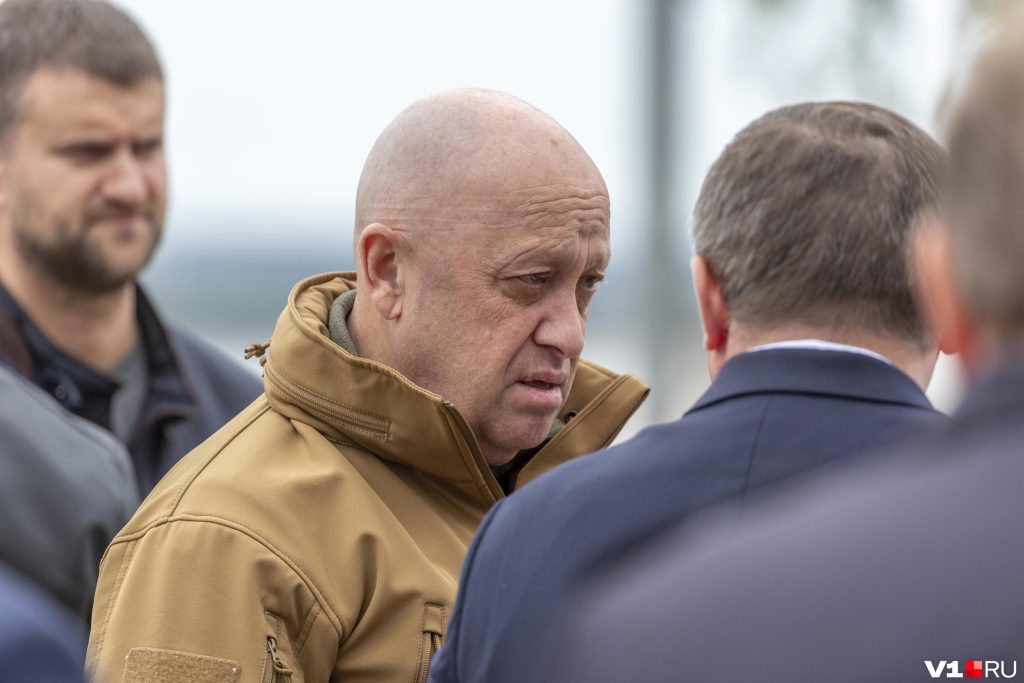
On Monday, February 20, the conflict between the curator of Wagner PMC Yevgeny Prigozhin and the Russian Ministry of Defense escalated once again. Prigozhin harshly accused the department of blocking the supply of shells for PMCs and even stated that those who blocked shells for him (that is, the command of the Russian troops) “are working for the enemies of Russia.” Moreover, Prigozhin claims that the Russian industry has already expanded the production of shells to the required quantity but does not supply them specifically to Wagner. Sometime later, the RF SO denied blocking the Wagner supply and stated that “advancement near Bakhmut would have been impossible without artillery fire support.”
Timeline:
- On February 21, Prigozhin stated that the shortfall in the supply of ammunition to his troops was still 80%. He called the Defense Ministry’s statement “a spit in the PMC” Wagner “and” an attempt to hide their crimes. Prigozhin also said that even sapper shovels had not been delivered to the Wagnerites. And he promised to provide all the documents about this to the military prosecutor’s office.
- On February 22, Prigozhin published a video of the bodies of the dead Wagnerites and stated that they died due to the lack of artillery support.
- One of the “commanders” of the self-proclaimed “DPR”, Alexander Khodakovsky, wrote that there was no discrimination against Wagner. On the contrary – before, PMCs received much more shells than the regular Russian army, but now they began to receive “like everyone else.”
- On February 23, Prigozhin announced that previously blocked projectiles began to arrive at PMCs.
Outcomes and outlook:
In the conflict between Prigozhin and the Russian Defense Ministry, two camps have long been formed among the military, supporting each of the parties. So Prigozhin and his PMCs are actively supported by a significant part of military correspondents and bloggers, which may indicate the broad possibilities of Prigozhin to use the information front to wage war (including within Russia). Also on the side of Prigozhin are individual generals involved in the so-called “SMO”, which is evidence of a split within the Ministry of Defense of the Russian Federation. Finally, it is noteworthy that this time the “head” of the occupied Crimea, Aksyonov, also took the side of Prigozhin, which may indicate the involvement of individual government officials.
It is important to note that although Prigogine is critical in his statements, he makes them consistently and thoughtfully. Despite the widespread opinion about Prigozhin’s war with Shoigu, an analysis of his words shows that the bulk of the criticism is aimed directly at the Chief of the General Staff of the RF Armed Forces Valery Gerasimov, who, in turn, is in tense relations with both Shoigu and Prigozhin, which nicely demonstrates the relationship within the military bloc.
In his recent statement, Prigozhin focused on the fact that under Surovikin, there were no problems with shells. At the same time, at the end of December, the curator of the Wagner PMC made similar statements, blaming Valery Gerasimov for the shortage of shells.
It is possible that with the help of this conflict, Prigozhin tried to explain the lack of a visible result in Bakhmut, where, despite the small successes of Wagner, the Ukrainian military holds the line.
In any case, it is important to consider that the creation of several groups of influence competing with each other may be part of an controlled process, the primary beneficiary of which remains Putin. For two decades, the Russian president did everything to protect himself from a possible “military conspiracy”, as he was afraid of a repetition of the incident of General Rokhlin (in the 90s, he was preparing a military coup in Russia to eliminate Boris Yeltsin and the pro-Western leadership of the Russian Federation). Therefore, it is possible that the confrontation between Prigozhin, Gerasimov and Shoigu is the tool that allows Putin to avoid a potential military conspiracy and overthrow of the regime.
True, as a result of such undercover games, in the “second army of the world”, there was a selection of mediocrity at the head of the army: career advancement was provided by ultra-loyal, lack of initiative and greedy people who would be easy to manage. Running in the conditions of Syria showed that not all generals are capable of command functions. The so-called “SVO” in Ukraine showed the professional unsuitability of many generals, which led to the need for constant rotations.
- Putin´s Interview on Russia 1 Channel
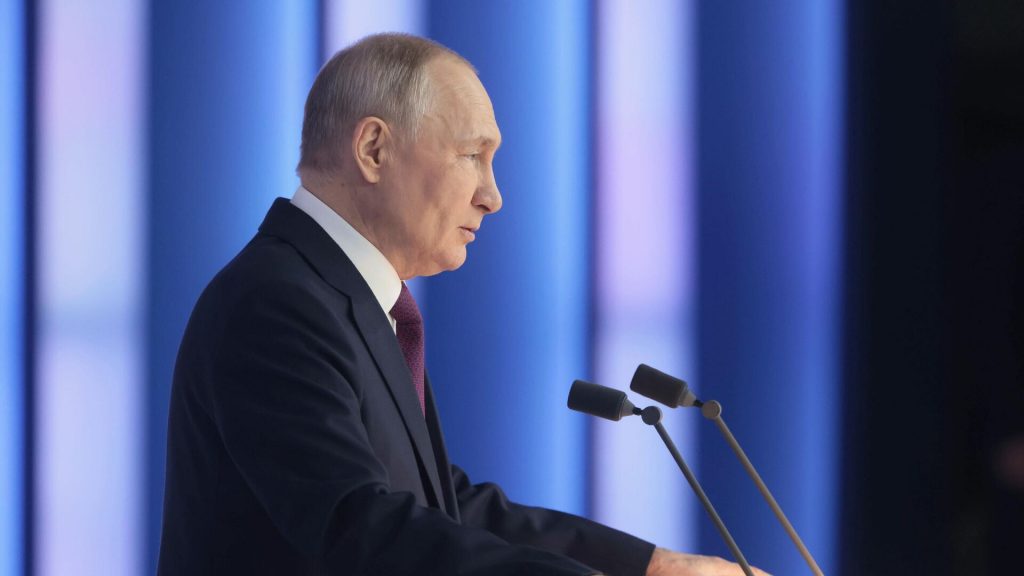
On Sunday, February 26, the Russia 1 channel aired an interview with Vladimir Putin, which he gave to the host of the “Moscow. Kremlin. Putin” show after speaking at a rally concert in Moscow’s Luzhniki on February 22.
Key theses:
- “The unity of the people of Russia is the main condition for all victories and achievements of the country”;
- “Russia cannot ignore the nuclear potentials of the entire NATO in conditions when the alliance wants to defeat it”;
- “The West has one goal – to eliminate the Russian Federation”;
- “US satellites have joined the fight against the Russian Federation, but they are aware of the selfishness of Washington’s intentions”;
- “The West could accept Russia into the “family of civilized peoples” only in parts”;
- “The Russian people, if the West succeeds in destroying the Russian Federation and establishing control over its fragments, may not be preserved – “there will be Muscovites, Urals and others”;
- “The world must change, but Russia is against building a new world in the interests of only one country – the United States”;
- “Russia will not act like the US towards other countries”;
- “Russia is the successor of the USSR in the legal sense, but it has a different potential”;
- “NATO weapons deliveries to Ukraine are participating in the conflict because the West does not receive money for these weapons.”
- “France was humiliated by the Americans in cancelling the order for submarines for Australia, but did nothing about it.”
Outcomes and outlook:
In fact, during this interview, Putin once again repeated the main theses from his message to the Federal Assembly. At the same time, it is important to note that the interview was recorded after Joe Biden’s speech in Warsaw. That is, it could contain specific messages that are a response to Biden’s statements or else correcting previously voiced positions.
In this case, it is worth paying attention to Putin’s words that “the West could accept Russia into the “family of civilized peoples” only in parts. The Russian people, if the West succeeds in destroying the Russian Federation and establishing control over its fragments, may not survive – “there will be Muscovites, Urals and others.” At the same time, in his speech, Biden said that “the West does not set itself the goal of destroying or subjugating Russia, and millions of Russians are ‘not our enemies’.” Putin appealed to this thesis.
It can also be assumed that the interview was recorded after Putin met with Wang Yi, which may indicate the coordination of certain positions with the Chinese side.
In this case, Putin’s statements during the interview should be taken as the final ideological position of Russia, agreed with its allies and voiced on the eve of the next round of negotiations with the West.
It is worth paying attention to Putin’s statement regarding France, which is particularly interesting against Macron’s announced visit to China. This statement can be regarded as a hint from Putin about his readiness to go for rapprochement if common positions are developed on resolving the Ukrainian issue. In this case, it is not worth discussing a change in Paris’s foreign policy vector. Still, against the background of strengthening Chinese positions in Europe, it can be assumed that in the future, Macron may lean towards a more pragmatic position that poses significant threats to Ukraine.
- EU agrees 10th package of sanctions against Russia
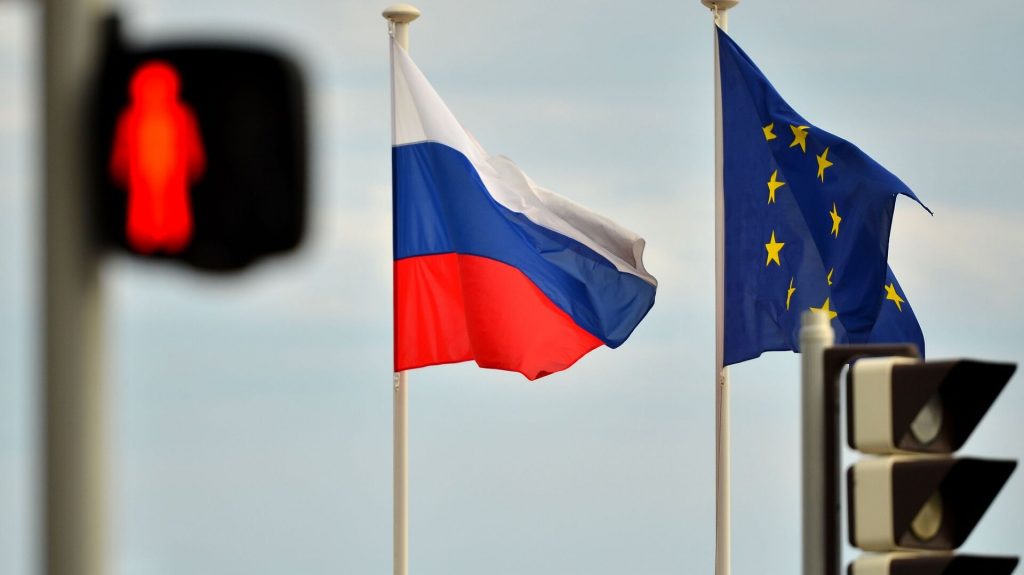
Throughout the week, active discussions were held in the European Union on introducing the tenth package of sanctions against Russia, originally planned to coincide with the anniversary of the Russian invasion of Ukraine. Despite a number of difficulties, it was still possible to reach a consensus by the end of the week, although this situation looks very alarming.
Timeline:
- On Wednesday, February 22, Radio Liberty correspondent Rikard Jozwiak said that the EU ambassadors had not agreed on the tenth package of sanctions against the Russian Federation. Earlier, the media wrote that the new package of sanctions is being delayed because of Hungary, which is blocking the strengthening of sanctions against relatives of Russian businessmen.
- Hungary opposed the proposed 12-month extension period for sanctions. Also, Politico reported that Hungarian Prime Minister Viktor Orban wants four people to be removed from the sanctions list.
- On Thursday, February 23, Reuters reported that EU countries again failed to agree on new sanctions against Russia, and negotiations will resume on February 24.
- On February 24, Reuters again stated that no sanctions had been agreed upon. At the same time, late in the evening, Radio Liberty correspondent Rikard Jozwiak said that the sanctions had nevertheless been agreed upon: “White smoke! Finally (!) an agreement on a new package of EU sanctions against Russia. The 10th since the beginning of the invasion in Ukraine exactly a year ago,” he wrote.
- “The EU adopted the 10th package of sanctions against Russia, blacklisted 121 people,” Josep Borrell, High Representative of the Union for Foreign Affairs, tweeted. In addition, the package includes “significant new export-import restrictions, a ban on Russian propaganda channels,” writes Borrell.
- It became known that large Russian banks fell under the sanctions: Alfa-Bank, Tinkoff, and Rosbank.
- The Council of the EU suspended broadcast licenses from two media outlets – RT Arabic and Sputnik Arabic.
- The tenth package of sanctions limits the ability of Russian citizens to hold positions in the governing bodies of critical infrastructure facilities and EU organisations.
- The Council of the EU imposed a ban on providing gas storage facilities to Russian citizens (except for some facilities for liquefied natural gas).
- Additional bans have been introduced to export critical technologies and industrial goods to the Russian Federation – electronics, specialised vehicles, machine parts, truck and jet engine parts, and goods for the construction sector.
- At the same time, in addition to sanctions, the US banned the import of household appliances into Russia. Restrictions apply to deliveries to the Russian Federation: refrigerators and air conditioners worth over $750; vacuum cleaners with a built-in electric motor cost more than $100; printers and smartphones over $300; electronic scales over $100; fans, including wall, floor and roof fans; dishwashers, household microwaves and coffee machines, electric toasters and sound recording and reproducing equipment. In total, 276 commodity nomenclature codes fell under the restrictions.
Outcomes and outlook:
It is important to note that the previous sanctions packages were adopted with some hesitation due to the lack of consensus. In this case, one should not talk about European states’ weakening of support for Ukraine. At the same time, the narrowing of sanctions possibilities is striking: the tenth package is more about refining previously imposed sanctions to eliminate shortcomings that allow circumventing restrictions.
Notably, the EU imposed sanctions against Russian banks associated with Russian oligarchs who did not support the war against Ukraine (Mikhail Fridman, Oleg Tinkov and others). Given that during his address to the Federal Assembly, Putin once again hinted to individual oligarchs that they were not welcome in the West, such sanctions could play into the hands of the Russian authorities, becoming an additional argument for representatives of large Russian businesses to stay in Russia or return there.
Notably, the tenth package of sanctions included additional export bans on electronics and other critical goods. Moreover, the United States also imposed restrictions on electronics export on the same day. This is an attempt to reduce the possibility of circumventing sanctions, allowing one to obtain the necessary chips to produce weapons.
At the same time, it can be assumed that soon, the countries of the European Union will increasingly appeal to pragmatism in making decisions on new sanctions. In his address to the Federal Assembly, Putin announced the low effectiveness of the sanctions, which was indirectly confirmed in the West.
Of course, we are not talking about lifting sanctions but rather an attempt to find more effective tools to save the EU economy and cause maximum damage to the Russian economy.
- Article by Dmitry Medvedev in Izvestia
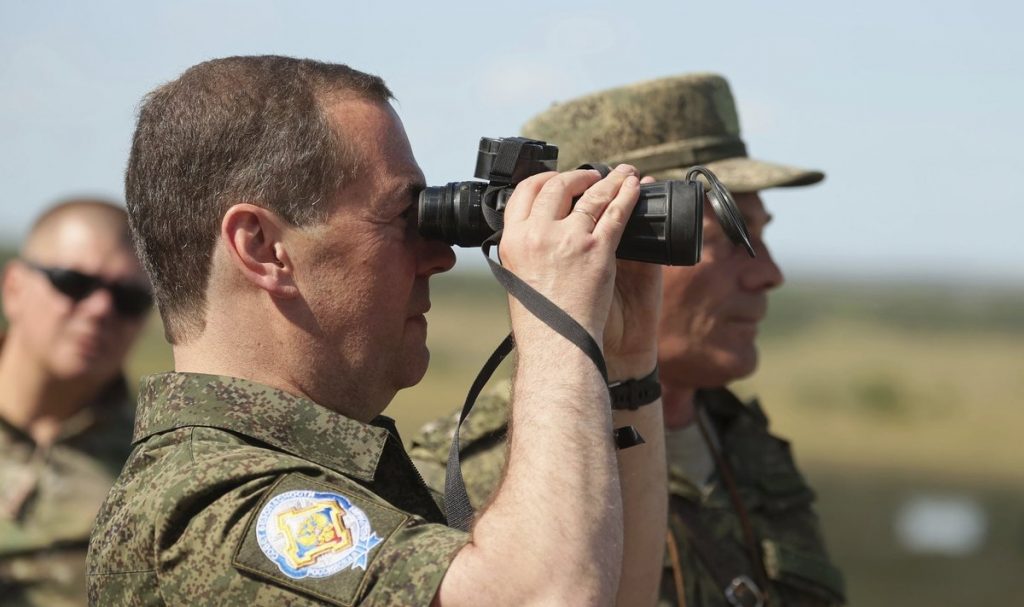
On Sunday, February 26, the website of the Izvestia publication published an article by Dmitry Medvedev, Deputy Chairman of the Security Council of the Russian Federation, “Points of No Return”. In the article, he reflects on the causes of the current geopolitical crisis and the key to preserving the future of the whole world. At the same time, in his characteristic manner, Medvedev does not spare eloquent phrases and hanging labels.
Key theses:
- “With a metallic roar, the foundations of the world order of the post-Soviet period collapsed, which until recently was considered, if not the best, but still more or less familiar. First, the international airbags did not work, and now the cracks are going wide and deep into the entire peacekeeping system on the planet.
- “What we are seeing now happened more than once – at the moment when another world empire came to the end of its existence.”
- “All the good talk about an equal partnership, a brave new world without dividing lines, and other beautiful-hearted rubbish was only a distraction. And they turned out to be meaningless formulas that masked the perverted plans of our eternal enemies.
- “Two dates can be considered points of no return. The first was in the fall of 2008 when the Western world supported Georgia’s aggression against the Ossetian people and lifted to the skies the fool, drug addict and adventurer, who was later rejected not only by his own country but also by a foreign one, where he cowardly fled. The second turning point is the spring of 2014, when the people of Crimea expressed their will in a legal referendum, returning forever to their historical homeland. This caused a frenzied, impotent hysteria in the Western world, which continues today.
- “If the question of the existence of Russia itself is seriously raised, it will not be decided on the Ukrainian front. And together with the question of the further existence of the entire human civilization. And there should be no ambiguity here. We don’t need a world without Russia.”
- “Of course, it is possible to continue pumping weapons to the neo-fascist Kyiv regime and block any opportunity to revive the negotiations. Our enemies are doing just that, not wanting to understand that their goals lead to a fiasco. Lose for everyone. Collapse. Apocalypse. When the former life will have to be forgotten for centuries until the smoky blockages cease to emit radiation.
- “Russia will not allow this. And we are not alone in this endeavour. Western countries with satellites – only 15% of the world’s population. There are many more of us, and we are much stronger. The calm power of our great country and the authority of its partners is the key to preserving the future for our entire world.”
Outcomes and outlook:
With his strong statements, Dmitry Medvedev is once again trying to demonstrate the already well-known technology of a conditional “Russia without Putin”, which consists in the thesis: if not Putin, then Medvedev is a nationalist fanatic who is ready to use nuclear weapons and erase the whole world into radioactive ashes if Russia faces real threats.
After the death last year of Vladimir Zhirinovsky, who broadcast super-tough and radical statements, the Kremlin decided to appoint Dmitry Medvedev, who previously acted as a liberal and technocrat, as the “new Zhirinovsky”. However, the new role is given to Medvedev with difficulty.
Medvedev’s statements are a carefully prepared element of the Kremlin’s unified information policy.
It is important to note that Medvedev’s article can also be considered as the last element of Russia’s public position on the eve of the negotiation process: after Putin’s message to the Federal Assembly, as well as the repetition of several theses in an interview for the Russia One TV channel, Dmitry Medvedev was also communicated into the information space, who showed what will happen if the West rejects Putin’s proposals.
It is noteworthy that almost simultaneously with Medvedev’s article, an article by the influential political scientist Alexander Dugin was published. In this article, Dugin discusses three options for Russia’s victory in Ukraine: “The minimum scale of the Victory could, under certain circumstances, be to place under the control of all territories four new [temporarily occupied] subjects of the Russian Federation – [self-proclaimed] “DNR”, “LNR”, [ temporarily occupied] Kherson and Zaporizhzhia regions. In parallel with this, the implementation of the disarmament of Ukraine and the guarantee of its neutral status in the foreseeable future. At the same time, Kyiv must recognise and agree with the current state of affairs. This is where the peace process can start. However, such a scenario is very unlikely. The relative successes of the Kyiv regime gave Ukrainian nationalists hope that they could defeat Russia. The average version of the Victory for Russia would consist of the liberation of the entire territory of historical New Russia, which includes Crimea, four new subjects and three more regions – Kharkiv, Odesa and Mykolaiv. This would suit the West. And finally, the complete Victory of Russia would be the liberation of the entire territory of Ukraine from the control of the pro-Western Nazi regime and the restoration of the historical unity of both the state of the Eastern Slavs and the great Eurasian power.”
In this case, we can also talk about Putin’s desire to demonstrate his readiness to raise the stakes in the war against Ukraine. But, of course, we are hardly talking about a willingness to use nuclear weapons, realising the scenario with radioactive ash described in Medvedev’s article. Still, in the near future, we should expect Russia to become more active in persuading official Kyiv to negotiate, which carries certain risks for Ukraine.
The nuclear threat is an essential element of the Kremlin’s information propaganda, which is perceived with great fear by the Western audience and, accordingly, has a particular impact on the domestic political situation in several Western states (including the United States). Such publications are designed precisely for the introduction of destruction.

